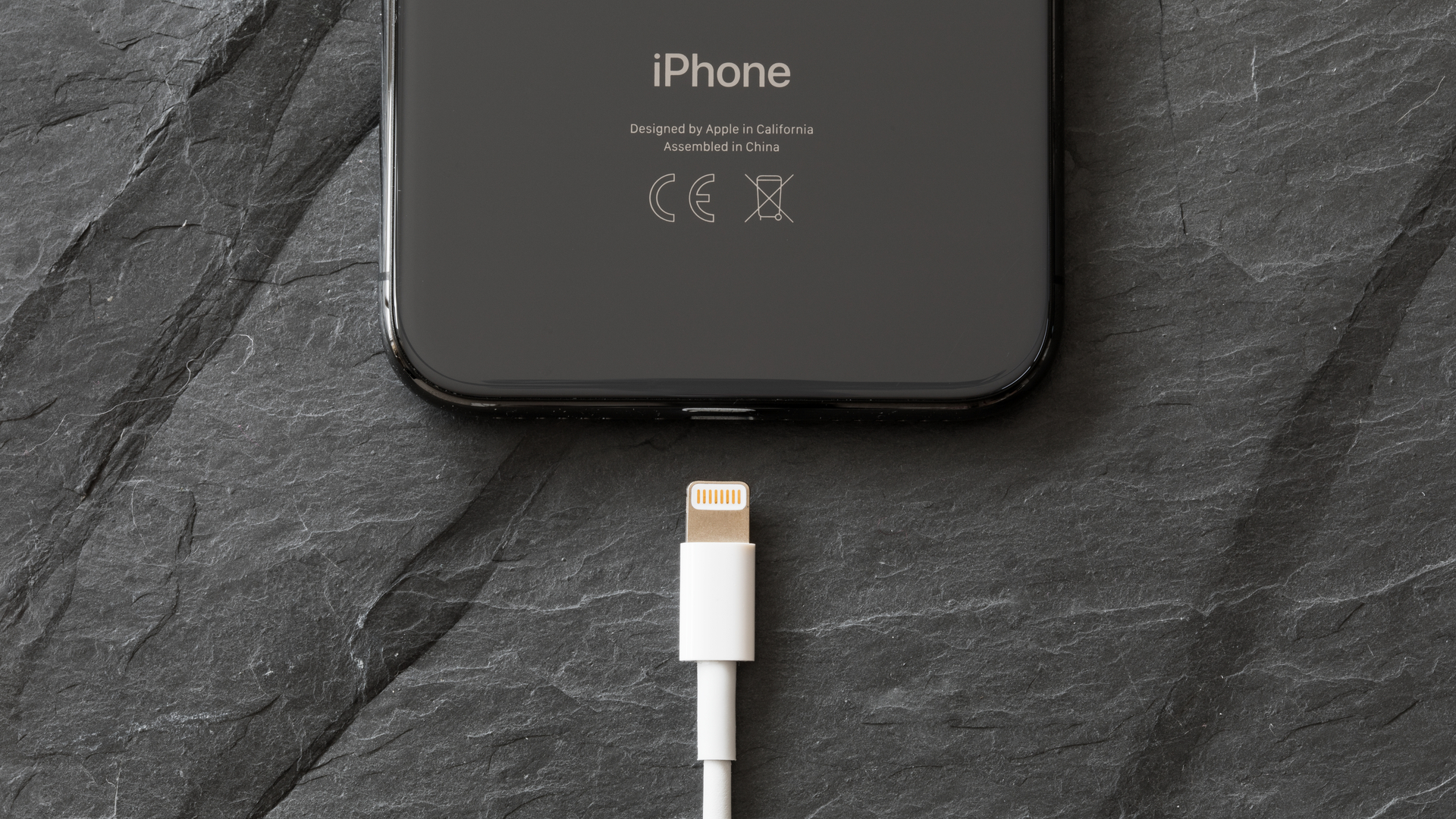Def Con developer sells $200 Mac-hacking iPhone cables
They take around four hours to make and only 10-20% were actually good enough to sell


A Def Con attendee has developed a malicious iPhone cable that allows attackers to remotely execute commands on a victim's device and was selling it to anyone who could find him.
The cable itself looks like any other iPhone Lightning cable: white, regular length, charges the phone and prompts iTunes to open whenever it connects to a computer but has an embedded wireless module that allows hackers to control a Mac computer connected to the cable from afar.
The developer, going by the alias MG, said that an attacker could launch a command or malicious payload through a specially crafted app from within a 300ft vicinity of the target. This could theoretically increase to a limitless range if the attacker configured the cable to act as a client to a nearby network if it supported an external internet connection.
Selling for $200, the cable has made the news previously when it was first created but this is the first time it's gone on sale. The potential implications of its distribution could be disastrous, especially in the business world.
Imagine a scenario where a person posing as a prospective job candidate enters the office building for an interview, but accidentally leaves the cable behind, only for an opportunistic employee to take it for themselves at the end of the day after realising the cable has no owner.
The employee could then come to work the next day and charge their phone as normal using their Mac, leaving the entire company's network vulnerable to remote attacks - a big reward for a relatively small $200 investment.
These types of attacks aren't out of the ordinary, in December 2018 it was revealed that eight European banks were targeted by criminals who stole millions after planting rogue Raspberry Pi devices in meeting rooms.
Get the ITPro daily newsletter
Sign up today and you will receive a free copy of our Future Focus 2025 report - the leading guidance on AI, cybersecurity and other IT challenges as per 700+ senior executives
"It's likely something that will be limited to very targeted attacks, such as swapping out a CEO's legitimate cable with a fake one," said Javvad Malik, security awareness advocate at KnowBe4. "One could conceive this being placed in a public place, such as an airport charging station, but it's probably easier for willing attackers to compromise public WiFi connections by setting up their own rogue hotspots.
"It may not be possible for the average person to tell whether a cable has been modified, so when in doubt, or when travelling, it may be worth using a 'USB condom' which, when used, blocks any data transfer, and only allows charging of a device."
MG said on his blog that the cables "are hand built, and take ~4hrs to make" but he only lets around 10-20% of the cables he makes go out for sale after an extensive testing period.
According to MG, people that bought the cable at the Las Vegas security conference received "the cable, a bonus physical programmer (if you brick the device or use self destruct), access to the private early access group, and a 50% off discount code that can be used when the production cable goes live on Hak5".
MG added that the poor yield from his efforts "should be solved by moving this into manufacturing" but he noted there wasn't enough time to solve that before Def Con.
This year's annual security conference wasn't in short supply of weird and wonderful security news. Yesterday IT Pro reported that researchers had devised a way to remotely inject ransomware into DSLR cameras - a previously unknown attack vector that could be particularly harmful to tourists.

Connor Jones has been at the forefront of global cyber security news coverage for the past few years, breaking developments on major stories such as LockBit’s ransomware attack on Royal Mail International, and many others. He has also made sporadic appearances on the ITPro Podcast discussing topics from home desk setups all the way to hacking systems using prosthetic limbs. He has a master’s degree in Magazine Journalism from the University of Sheffield, and has previously written for the likes of Red Bull Esports and UNILAD tech during his career that started in 2015.
-
 Bigger salaries, more burnout: Is the CISO role in crisis?
Bigger salaries, more burnout: Is the CISO role in crisis?In-depth CISOs are more stressed than ever before – but why is this and what can be done?
By Kate O'Flaherty Published
-
 Cheap cyber crime kits can be bought on the dark web for less than $25
Cheap cyber crime kits can be bought on the dark web for less than $25News Research from NordVPN shows phishing kits are now widely available on the dark web and via messaging apps like Telegram, and are often selling for less than $25.
By Emma Woollacott Published
-
 Google pays largest-ever bug bounty worth £500,000
Google pays largest-ever bug bounty worth £500,000News The company remained tight-lipped over the exploit itself, but speculation is possible given its publicly available rewards breakdown
By Connor Jones Published
-
 OpenSSL 3.0 vulnerability: Patch released for security scare
OpenSSL 3.0 vulnerability: Patch released for security scareNews The severity has been downgraded from 'critical' to 'high' and comparisons to Heartbleed have been quashed
By Connor Jones Published
-
 Hacker steals $566 million from Binance Bridge using proof-forgery exploit
Hacker steals $566 million from Binance Bridge using proof-forgery exploitNews An exploit discovered in the exchange platform's proof verifier let the hacker take 2m BNB without raising alarm bells
By Rory Bathgate Published
-
 CISA issues fresh orders to polish security vulnerability detection in federal agencies
CISA issues fresh orders to polish security vulnerability detection in federal agenciesNews The move marks the latest step in the cyber security authority's ongoing ambition to minimise the government's exposure to attacks
By Praharsha Anand Published
-
 Mozilla patches high-severity security flaws in new ‘speedy’ Firefox release
Mozilla patches high-severity security flaws in new ‘speedy’ Firefox releaseNews Numerous vulnerabilities across Mozilla's products could potentially lead to code execution and system takeover
By Connor Jones Published
-
 WordPress plugin vulnerability leaves sites open to total takeover
WordPress plugin vulnerability leaves sites open to total takeoverNews Customers on WordFence's paid tiers will get protection from the WPGate exploit right away, but those on the free-tier face a 30-day delay
By Rory Bathgate Published
-
 Numerous HP business laptops and desktops vulnerable to publicly disclosed security bugs
Numerous HP business laptops and desktops vulnerable to publicly disclosed security bugsNews Researchers revealed the details of the six vulnerabilities at Black Hat in August but many laptops, desktops, and workstations remain vulnerable
By Connor Jones Published
-
 HP patches high-severity security flaw in its own support tool
HP patches high-severity security flaw in its own support toolNews The application that's installed in every HP desktop and notebook was allowing hackers to elevate privileges through a DLL hijacking vulnerability
By Connor Jones Published